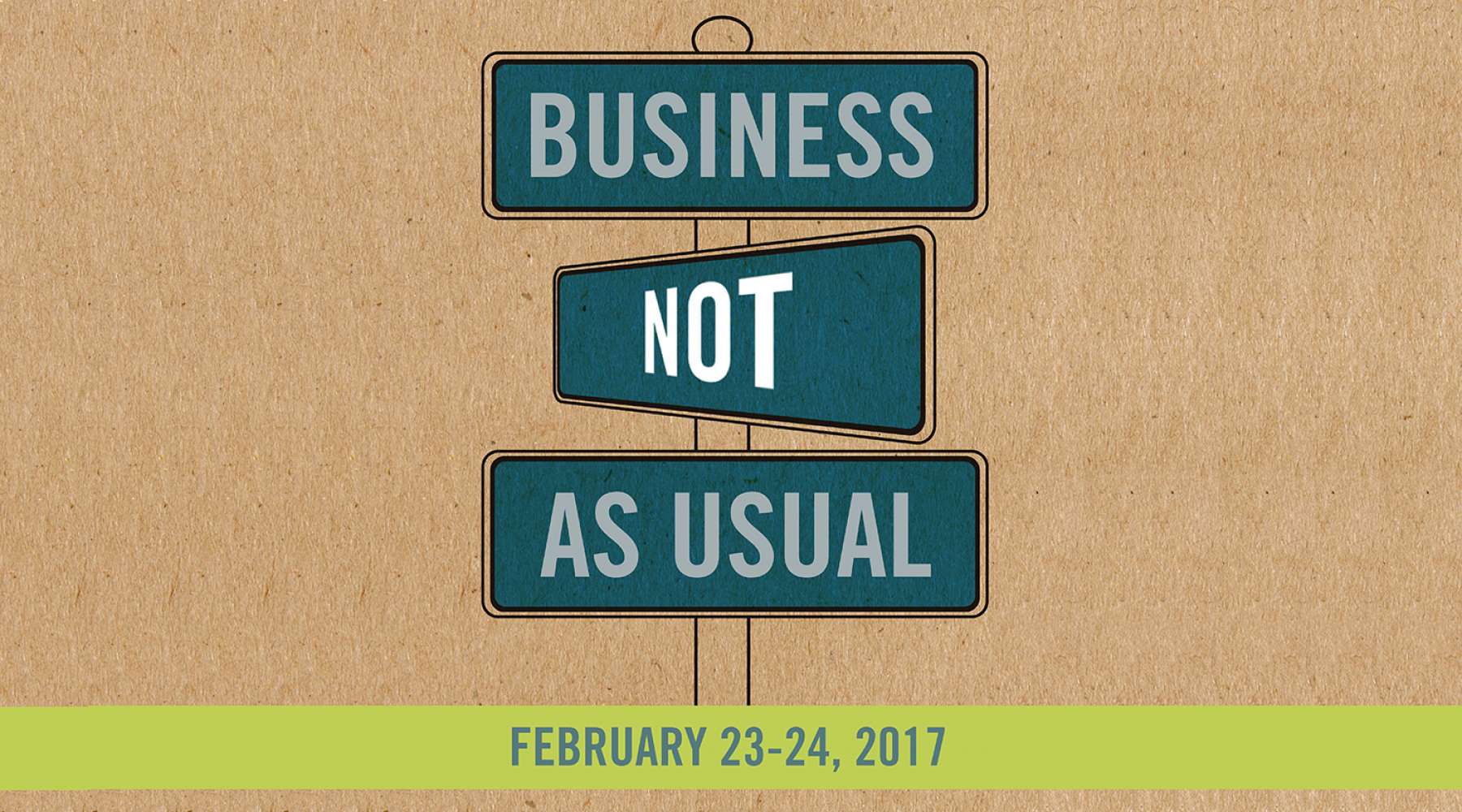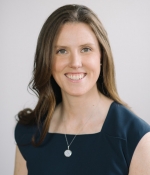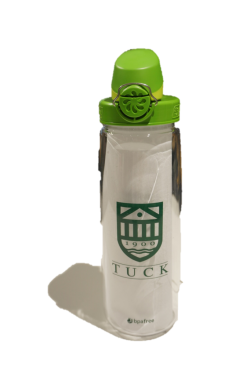
 Catherine Boysen T’18 (right) is spearheading an effort to make this year’s Business & Society Conference a “minimal waste conference.” I sat down with her recently to talk about her goals, why she’s inspired, and the impact she hopes her initiative will have.
Catherine Boysen T’18 (right) is spearheading an effort to make this year’s Business & Society Conference a “minimal waste conference.” I sat down with her recently to talk about her goals, why she’s inspired, and the impact she hopes her initiative will have.
—Carole Gaudet, Center for Business, Government & Society
Because of the content of BSC, I think it’s a good starting place for people to learn about minimizing waste, and seeing what’s possible. We’ve got three main goals:
I participated in a leadership program in Maine which brought together people from all across the state. Our goal was addressing economic development, and how to provide leaders with tools to improve problems in the state. Over the course of one day-long gathering, we generated so much waste, from tiny Styrofoam cups to 6 oz. water bottles, that there weren’t enough garbage and recycling bins to handle it all. You couldn’t ignore it, but most people were ignoring it. We were gathered together to address the state’s problems, but we couldn’t even see this thing that was right in front of us. It was as if we just assumed that this was a cost of getting together.
I ended up working with that group to make sure the next events were done more responsibly. I challenged everyone to bring their own coffee mugs and water bottles, and to go back to their companies and see if they could bring similar measures to their workplaces.
Everyone was willing to hear it, and people were able to make little changes in their companies pretty easily. But, for some reason, it took me saying something to encourage it.
We’ve got several tactics:

We’re hoping that what comes out of this work will be a handful of requirements that all conferences will have to meet, in order to be considered an official “Minimal Waste Conference.” I’ll work with the Dartmouth Sustainability Initiative to tweak our recommendations, so that these standards can be used by other campus groups. At Tuck, we’ll be able to create better signage to show people what goes where. Most people have a desire to do the little things they can do, but we don’t make it easy for them. There aren’t enough recycling bins, trash bins, and infrastructure to make it easy, which is all people really need.
I can’t walk into a new company and not be aware of these issues. Wherever I end up post Tuck, I think this will be a part of my role and legacy—to challenge organizations to take a thoughtful look at their footprint. And I hope every one of my classmates does the same thing, wherever they end up. That’s a great ripple effect. If that becomes Tuck’s reputation, that’s a huge long-term win.
Now, more than ever, the world yearns for a special kind of leader—one who is humble, empathetic, and who possesses the wisdom and smart judgment to address social challenges and better the world of business. In a world facing many challenges, the wise leader is one who rises to the occasion to make a difference.
We hope that you will continue the conversation with us at the 15th annual Business and Society Conference, which will explore these questions and examine the importance of wise leadership in a rapidly changing business landscape. Registration is now open.
The Center for Business, Government & Society is focused on meeting the evolving complexities facing business leaders in today’s global economy. In the context of globalization and technological advancement, business success increasingly depends on reconciling the interests of its immediate stakeholders with the broader, deeply intertwined interests of both governments and society. Business leaders adept at navigating these many interests will be better equipped and empowered to help build a more sustainable global economy.